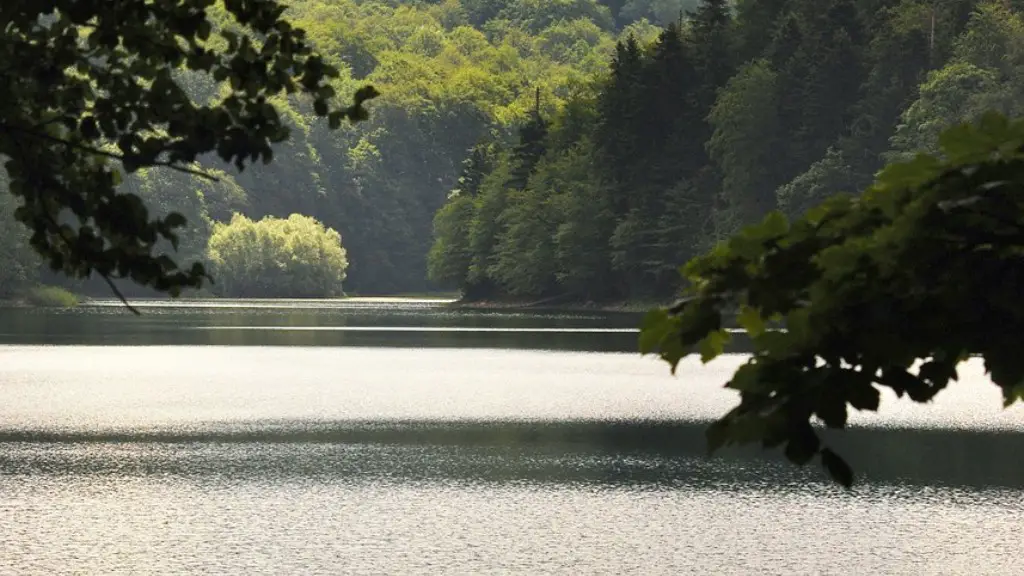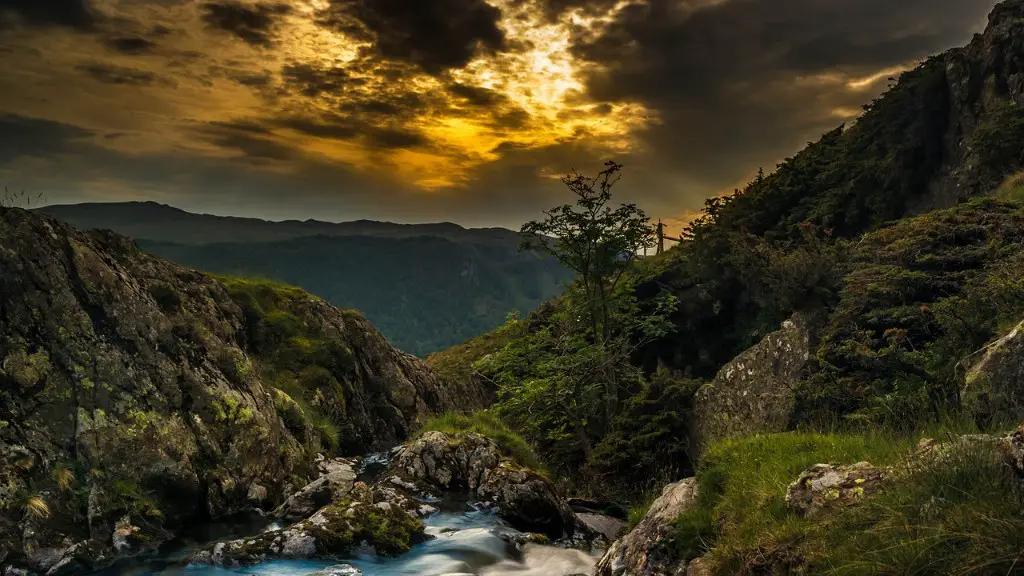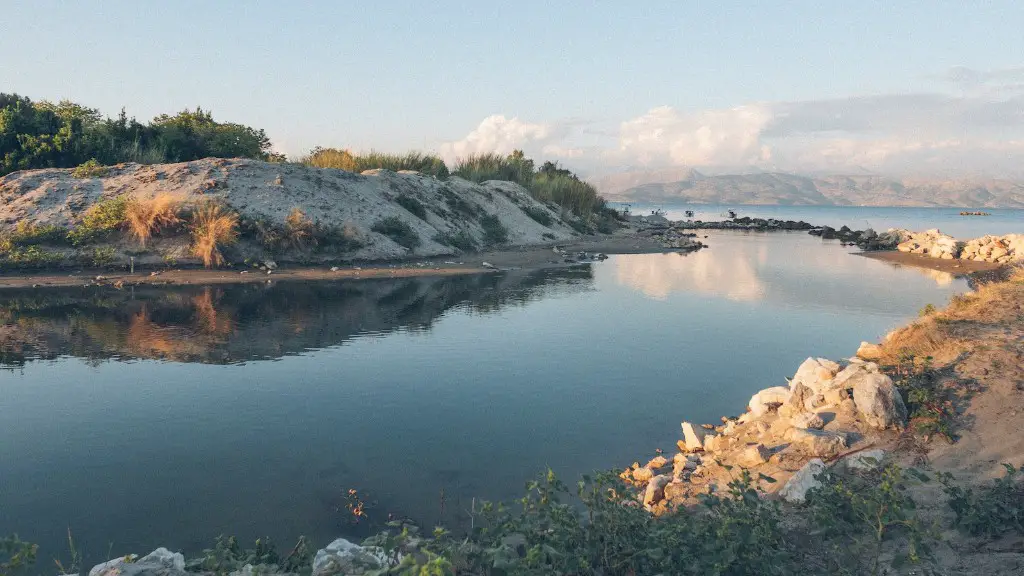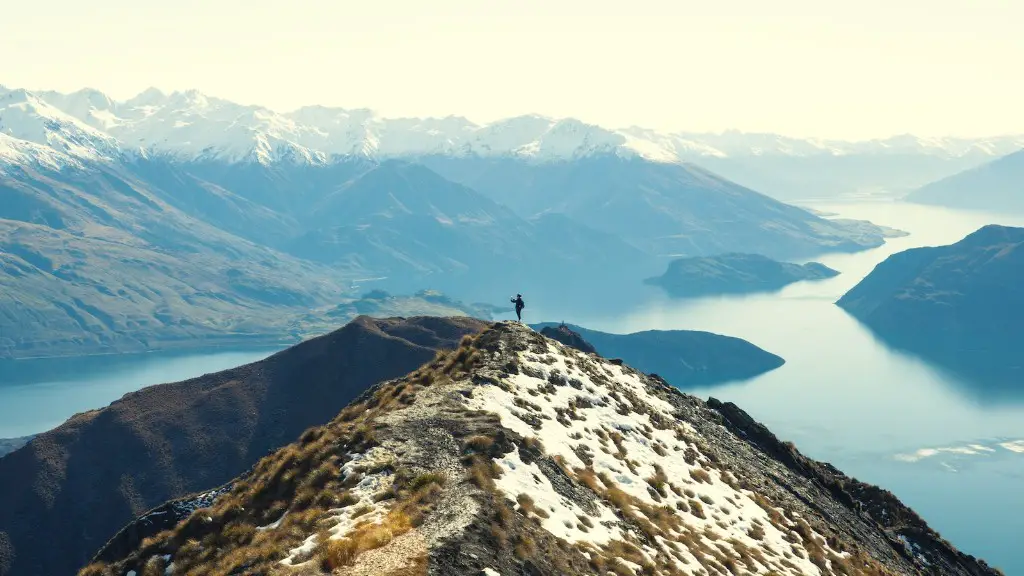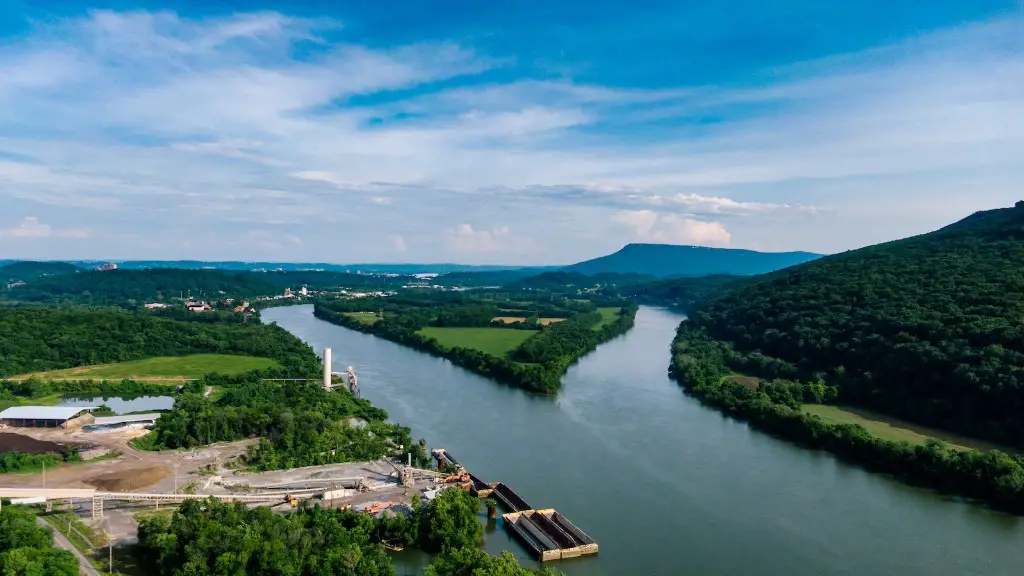Louisiana’s geography has been shaped in part by its relationship with the Mississippi River. This mighty river is an integral part of the state and its riverside communities, from the state capital of Baton Rouge to the small towns in the delta parishes. In addition to providing transportation for goods and services, the Mississippi River has also been a source of food and has served as a major regional transportation corridor for centuries. The effects of the river on Louisiana’s landscape and its agricultural and industrial economy are far-reaching.
The most notable impact of the Mississippi River on Louisiana’s geography is the fertile soil deposited along its banks. This sediment forms the basis of Louisiana’s agricultural economy, and the nutrients it contains have allowed farmers to grow a wide variety of crops, from sugar cane and cotton to corn and soybeans. In addition, the Mississippi River has provided a terrific habitat for a wide variety of fish and aquatic life, making it a popular fishing spot.
The Mississippi River has also had an impact on the shape and size of Louisiana’s coastal wetlands. The sediment deposited by the river over the years has helped create a coastal wetlands system that covers almost two thirds of the Louisiana’s shoreline. This system of wetlands is an integral part of Louisiana’s ecology, as it helps protect the shore from erosion and provides a vital habitat for fish and other aquatic life. In addition, the wetlands are a crucial buffer against hurricanes and other storms.
One of the other major impacts of the Mississippi River on Louisiana’s geography is its transportation corridor. The river has provided a major shipping lane for centuries, allowing goods and services to move between the state’s Gulf Coast cities and the rest of the country. As the river has become increasingly industrialized in the 20th century, the transportation corridor has become even more important to the state’s economy.
The Mississippi River’s influence on Louisiana’s geography cannot be understated. It has provided essential economic opportunities, shaped the state’s wetlands and coastline, and is a vital transportation corridor. Its importance to the state in both its ecological and economic contexts is undeniable.
Efforts to Manage and Protect the Mississippi River
The Mississippi River is the lifeline of Louisiana, and the state’s citizens and government agencies are taking extensive steps to maintain and protect it for generations to come. There are a number of programs in place to monitor water quality and control pollution from industrial and agricultural runoff into the river. In addition, the state has implemented a variety of engineering projects to keep the river’s channel in a stable condition, such as the construction of levees, flood control structures, and water diversion projects.
The state and federal governments have also taken steps to restore Louisiana’s wetlands and maintain the health of its coastal ecosystems. In recent years, the state has launched a number of wetlands restoration projects, including the Louisiana Coastal Area program, which aims to restore and protect over one million acres of wetlands along the Gulf of Mexico. These projects are helping to rebuild and maintain the state’s various wetland ecosystems, and they serve as a vital line of defense against hurricane damage.
Finally, the state and federal governments are working together to promote conservation and sustainable development of the Mississippi River. This includes significant investments in developing infrastructure along the river’s banks to support recreation, such as bike paths, boat docks, and fishing piers. The state is also working to limit the impacts of agricultural production and the effects of climate change on the river, including creating buffer zones and establishing controlled waterway depths.
Louisiana’s efforts to protect and manage the Mississippi River have had a significant impact on the state’s geography and environment, ensuring that the river and its associated wetlands will continue to provide vital economic and ecological services for generations to come.
The Mississippi River Impact on People and Local Culture
The Mississippi River has had a significant impact on the people living along its banks in Louisiana. This impact extends far beyond the economic benefits provided by the river’s transportation and agricultural production. The river has been an integral part of the state’s culture and society for centuries, and it has played an important role in the development of local folklore and art.
The Mississippi River has been an important source of inspiration for Louisiana’s musicians and artists. Songs such as “The Mississippi River” by Fats Domino, “My Mississippi Bubble” by Louis Jordan, and “Deep in the Heart of Louisiana” by Louis Armstrong have all been influenced by the river and its powerful influence over the region. In addition, many of Louisiana’s painters and sculptors have used the river as a source of inspiration for their works.
The Mississippi River has also had a profound impact on the local food culture. Along the banks of the river, food staples such as gumbo and jambalaya were born from the combination of Native American and African influences as well as the abundant seafood, rice, and other ingredients provided by the river. The river’s fish and wildlife have also shaped the region’s culinary traditions, from the popular crawfish boils to the region’s famous seafood restaurants.
Finally, the Mississippi River has been an important source of spiritual and cultural significance for many of the state’s residents. For generations, the river has been a place of spiritual exploration and pilgrimage, and has been seen as an integral part of the state’s spiritual landscape. Many local churches and spiritual sites have been built facing its waters, while many ceremonies incorporate the river as part of their rituals.
The Mississippi River has been an essential part of Louisiana’s culture and people for centuries, and it is sure to continue to influence the state’s social, cultural, and spiritual traditions in the years to come.
The Challenges Facing the Future of the Mississippi River
The future of Louisiana’s relationship with the Mississippi River is far from certain. While the state is working hard to maintain and protect the river, there are a number of challenges that threaten its future. These include climate change, development, pollution, and over-utilization of the river’s resources.
Climate change is expected to have a profound impact on the Mississippi River in the coming years. Scientists predict that rising sea levels and increased hurricane activity will lead to increased flooding and more intense storms, as well as further erosion of the river’s banks and damage to its wetlands. In response, the state is working to develop resilience projects to reduce the impact of these events, but there is still much work to be done.
Additionally, pollution and over-utilization of the river’s resources remain major concerns. The river receives large amounts of pollutants from agricultural runoff and industrial waste, which can have a devastating impact on the river’s ecosystems and the wildlife that relies on it. Over-fishing and over-consumption of its resources can also put the health of the river at risk.
Finally, the river’s channel is facing increased pressure from development projects. This is due in part to the increased population on the state’s Gulf Coast, which has led to increased boat traffic and the construction of marinas, oil rigs, and other structures. This has created a number of challenges for the river, from increased siltation to water intake and leakage issues.
The future of the Mississippi River faces a number of challenges, many of which are the result of human activities. It is essential that the state and its citizens continue to work together to protect the river and its ecosystems for future generations.
Conclusion
The Mississippi River has had a profound impact on Louisiana’s geography, ecology, economy, and culture. It has provided essential economic benefits, shaped the state’s wetlands and coastlines, and been an important part of its social and spiritual heritage. However, the future of the river is threatened by a number of factors, including climate change, pollution, over-utilization of its resources, and development. It is crucial that the state and its citizens continue their efforts to protect and maintain the river and its ecosystems.
